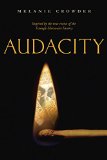Summary | Excerpt | Reviews | Beyond the book | Read-Alikes | Genres & Themes | Author Bio

Imagine you're seven years old, and the only people you have contact with are your nine-year-old brother and a fiercely protective, paranoid mother who keeps you housebound to spare you from the plague she claims is destroying the entire population. Such is the strength of Jan Elizabeth Watson's writing, and the immediacy of Asta's narration, that you can't help but be drawn deep into the terrible reality of the book. Although we never meet the adult Asta, she narrates through the eyes of her seven-year-old self, reliving the year she discovers that everything she has been led to believe, by the person she loves most, is not true.
The year is 1978 and Asta has no memory of ever leaving their isolated Cape Cod in the town of Bond Brook, Maine, population 849. The house is completely locked and boarded, although she and her brother, Orion, have a small window to the world through their three-channel rabbit-eared TV. By keeping the children isolated, their mother convinces them she is giving them a "fighting chance" to survive the plague, and Asta imagines human bodies piled waist-high outside their door. Most of Asta's understanding of the outside word comes piecemeal from her mother's stories and the theories. "Mother was always bursting with ideas. A few weeks earlier she had expressed her thoughts on evolution, which included her conjecture that the towering dinosaur remains in the Museum of Natural History were not dinosaurs at all, but a hoax -- a man-made likeness built from human bones."
Both children are highly intelligent and passionate readers due to their mother's diligent home-schooling and her obsessive interests in literature, theatre and films. They can quote Shakespeare and the Bible as well as all the lines their mother spouts endlessly. Asta and her mother spend hours pouring over the Big Movie Book with an on-going commentary on the films, the actors, their costumes, their gestures.
Even when the television gives her a glimpse of a different life, Asta rationalizes what she sees to fit the belief system her mother has instilled. For example, she's momentarily puzzled when she sees a TV show with healthy-looking children clapping and singing -- "rows and rows of children sitting in bleacher seats... children like us, yet not like us. Children from the outside." But so trusting are Asta and Orion of their mother, they assume the show is an old one and by now all these children have succumbed to the ravenous plague.
In spite of an outside world that is supposedly being devastated, the mother leaves each day to the drudge work of an office cleaning lady. In her absence the children read, do their homework, entertain each other, and watch their three channels. They fend for themselves in the kitchen, often opening a can of soup that is not labeled, hoping the contents are something besides the usual broth. Both are so malnourished that it hurts to sit on unpadded chairs and Asta has to sleep with a pillow between her legs to keep her kneecaps from jabbing into each other.
What makes this book so poignant is that the children are oblivious to their abuse and quite happy. In their innocence, they trust their mother explicitly and love her totally, centering their lives around her homecoming at the end of each day as they prepare the house for her return with the utmost precision. Her favorite teacup and saucer on the table, her bathrobe over her armchair, two cold soda bottles on the floor by her chair where she can ease her tired arches. Just when as a reader you're feeling a touch of compassion for the delusional mother, the author jars you back into the pathetic reality. "Orion and I always guessed, with much anticipation, what Mother would bring home to eat with her after-dinner tea. Most days iced or sugar-sprinkled cookies. We weren't allowed to have a bite since sugar reduced children's natural immunities, but we did think it a magnificent moment when Mother revealed what she had."
Because mother's return home is the highlight of their day, we sink into despair with these children on the day she fails to come home. The children are so secure in her love (she would never not come home) they are convinced she is out there, surely needing their help. Bravely they venture out in spite of perceived danger. Imagine their shock when they discover the "normal" world is not at all what their mother portrayed. Now they must try to make sense of this place so different from anything they have known, while still desperately missing the one person who was the center of their lives.
As Asta and Orion cope with this startling reality, new characters enter their lives -- distant relatives, teachers, social workers, children at school. Although we experience only two days of the children's isolation in Book One (one-third of the book), the powerful writing sets the stage for the last two-thirds (Book Two). As we follow Asta's and Orion's difficult assimilation into the "real" world, we read on hoping for the best for these resourceful, yet tender children.
We long to comfort Asta when she tries desperately to find her place in a new family only to be treated indifferently. We ache when she is the only one at recess with no playmate, and we fear for her when she at last finds a friend in eighteen-year old Leon, who is both ominous and comforting. We also cheer for her when she displays fortitude, often remembering prompts from her Mother, sometimes simply stage directions, "PROJECT, STAND TALL." On a deeper level, she recalls her mother's voice, "You can conduct yourself as if you are watching a movie -- with darkness closing in on all sides... or you can conduct yourself as if you are acting in a movie, with your inner light guiding you all the way."
Through Asta's unique voice and perspective we are reminded of the resilience of children. Through her ordeal of finding her way in a new life, we are reminded of the goodness of people, and through her constant search for Mother, we are reminded of the powerful mother-child bond of love. An early review called Asta in the Wings "a gem of a book" and I would agree.
![]() This review
first ran in the February 19, 2009
issue of BookBrowse Recommends.
This review
first ran in the February 19, 2009
issue of BookBrowse Recommends.

If you liked Asta in the Wings, try these:

by David Vann
Published 2016
In crystalline, chiseled, yet graceful prose, Aquarium takes us into the heart of a brave young girl whose longing for love and capacity for forgiveness transforms the damaged people around her.

by Melanie Crowder
Published 2016
The inspiring story of Clara Lemlich, whose fight for equal rights led to the largest strike by women in American history
Your guide toexceptional books
BookBrowse seeks out and recommends the best in contemporary fiction and nonfiction—books that not only engage and entertain but also deepen our understanding of ourselves and the world around us.